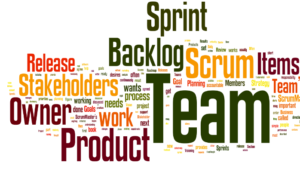 I have been somewhat skeptical about the broad applicability of the Agile development methodology due to observation of a range of design and development projects within large financial services corporations that suffered production delays and quality problems despite being “Agile.” To me, the problem isn’t necessarily the methodology you choose, it’s getting people to actually follow the methodology you have and investing in ongoing training.
I have been somewhat skeptical about the broad applicability of the Agile development methodology due to observation of a range of design and development projects within large financial services corporations that suffered production delays and quality problems despite being “Agile.” To me, the problem isn’t necessarily the methodology you choose, it’s getting people to actually follow the methodology you have and investing in ongoing training.
Now, there seems to be some evidence to back that up.
Magenic, recently commissioned Forrester Research to study the challenges and opportunities Agile software development presents. Among the study’s findings are four key reasons organizations are not experiencing the anticipated level of success with Agile:
- Development teams are not achieving high quality with Agile. In Magenic’s Forrester study, 74% of respondents stated they expected improved technical quality with Agile, but only 30% were experiencing it.
- Ninety percent (90%) of respondents stated that they recognize Agile requires an investment in the skills, processes and technology to build a modern application delivery organization, but 37% indicated they lack the automated infrastructure needed to make this a reality, and 30% indicated company culture is barrier to full adoption.
- Thirty seven percent of respondents noted that the lack of skilled product owners was creating a barrier to Agile implementation and success. Fifty two percent of respondents said product owners are hard to find, and 38% said that when there is a product owner, that product owner lacks the necessary skills.
- More than 40% of respondents indicated that they only test the product once the application has been completed; only 12% state that they perform application testing early on and within each sprint. In addition, 34% of respondents noted that those conducting the testing lacked Agile testing skills.
While Magenic’s recommendations centered on a better and broader adoption of Agile, I look at this information and say “why not let a company that is actually agile do your development.” At, least create groups that are focused enough to be agile. Most big companies are not swift, nimble, flexible or agile. The ones that are have created small teams of people and empowered them to get things done and then held them accountable for quality. My advice: Spend more time on culture, empowerment and incentives and less time on learning a new methodology.
P.S. Magenic’s Forrester study, “Leverage Agile to Meet Customer Demands and Software Quality Needs,” is available in its entirety on the Magenic website.
It’s hard to be agile, but a worthy goal. Keep in mind that not every methodology is a best fit for every type of project.



Comments Closed